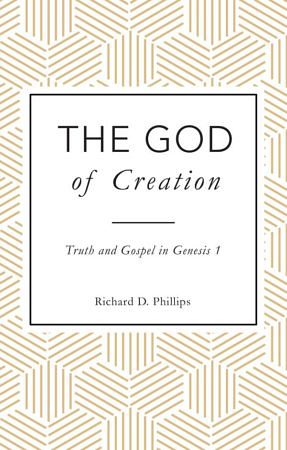
This excellent book is much more than a useful popular commentary on the first chapter of the Bible. The author deliberately and carefully explains how God’s creative process lays the essential foundation for a Christian worldview. His exposition of Genesis 1:1 is, in this regard, alone worth the price of the book. Christians desperately need to wake up to the fact that the gospel can sound weird and nonsensical to a culture steeped in a strange combination of materialistic scientism and neo-pagan spirituality. The approach of this book helps us to understand and address the issues that render ineffective evangelistic approaches which were designed and developed for a different world.
Phillips stresses the vital importance of treating the Creation account as sober historical narrative. God did not hoodwink his people for 1,800 years about how the heavens and the earth were formed. He goes on to show why there is no need to be cowed by evolutionary theories overwhelmingly adopted by a scientific community from whose mindset supernatural explanations are on principle excluded.
A young earth view is rightly seen as consistent with the evidence of Scripture, alongside a good defence of a literal six days. The first chapter of the Bible is not written in poetic form, as is so often stated, and the author consequently holds no truck with treating Genesis 1 as mere allegory. He goes on to show that capitulation from the historical truth at this point means that the fact of Adam’s Fall, and ultimately the reality of our redemption in Christ, are spirited away.
Apart from the above, one standout chapter for this reviewer highlighted the significance of the ‘making and separating’ theme in Genesis 1. One example of rejecting God’s ordering in this regard would be the destructive cultural acceptance of so-called ‘gender fluidity’. Another chapter clearly lays out the importance of our being made in the image of God.
There are some weaknesses. The author might have better considered a readership beyond American Presbyterianism and not all Christians would be convinced that the New Testament authorises a change of day for the Sabbath from Saturday to Sunday (p.176) – in fact not all Christians would agree that ‘The Ten Commandments are just as fixedly created as the laws of nature’ (p.19). Lastly, it is not always clear whether the book is intended for Christians or non-Christians – although it might be churlish to complain about gospel invitations in a book that lives up to its title in showing the gospel implications of Genesis 1.
Regardless of any caveats, this book is an extremely important contribution to a debate that confuses and weakens the faith of many believers. May it be widely read, to encourage and strengthen Christian witness in these days.
